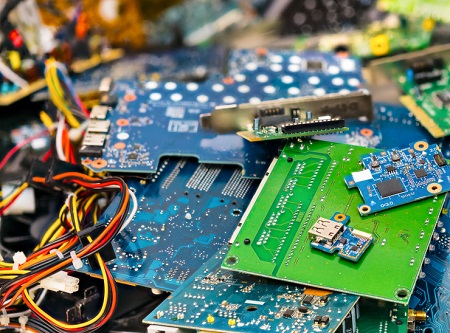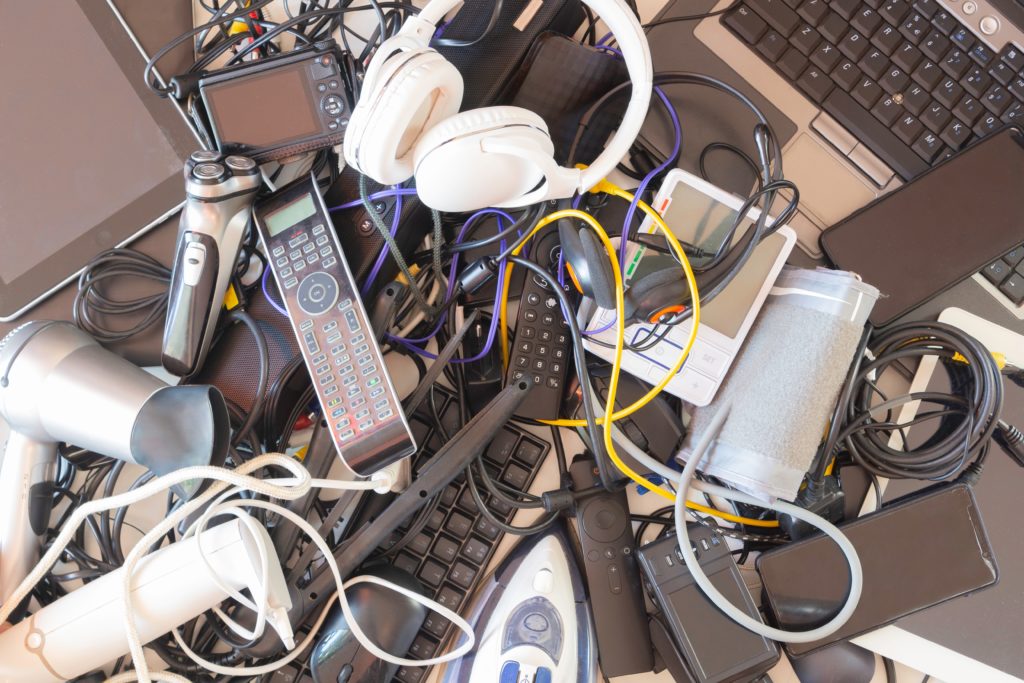Published today (26 November), the committee outlines that the government must set “ambitious long-term targets” for the collection, re-use and recycling WEEE, stating that the current system of collection targets in the UK as “unclear”.

Outlining issues with current targets, the report said that national figures on collection rates include a “significant amount of estimation” about electronics that have been collected in different ways, with “no clear understanding” as to whether those collected are treated in a “high-quality manner”.
The committee said DEFRA must set targets that align with existing commitments like zero waste to landfill, as well as making it clear that these are collection targets for both re-use and recycling to prevent recycling being “prioritised” over keeping valuable WEEE in circulation.
Environmental Audit Committee chairman, Philip Dunne MP, said that “as a society” the UK cannot continue to ignore the e-wate problem.
Letsrecycle.com spoke to Mr Dunne about the report in more detail.
Recycling process
In concern over the recycling processes of WEEE, the committee notes that current methods rely heavily on shredding, with about 80% of recycled electronics going to this form of “low value recycling”.
It added that the resulting shredding mix, is considered toxic and is mostly sent overseas to refineries based in Belgium and Sweden
The committee said that manufacturers must ensure that products are recyclable and dismountable by waste treatment operators. The government must also apply incentives, potentially through extended producer responsibility, (EPR), for the design of products that are easy to recycle.
It also recommended that the Government “fast-tracks the national materials datahub” to track critical raw materials in the UK. The aspects that focus on critical raw materials, E-waste and toxic chemicals should be operational by 2023.
EPR
The report focuses heavily on extended producer responsibility (EPR), calling for the government to put more pressure on the manufacturers of electronic equipment.
The government is being urged to put more responsibility on companies such as Amazon and Apple in collecting, recycling and repairing their products which, according to the report, contribute to 155,000 tonnes of WEEE ending up in UK household bins each year.
DEFRA are due to publish consultations on EPR throughout early stages of 2021. A consultation on EPR for packaging, followed by a consultation on reviewing the WEEE Regulations are also due later in the year.
‘Dodging Responsibilities’
Mr Dunne said: “For too long companies like Amazon and Apple have been dodging their environmental responsibilities for the products they sell.
“For too long companies like Amazon and Apple have been dodging their environmental responsibilities”
“Too many devices sold and made by these companies have a limited, and sometimes decreasing, lifespan and end up in bins, eventually going to landfill or incineration. There is no chance of precious metals being retrieved, which could quickly become a huge problem as the rare and disappearing materials are crucial for renewable energy such as wind turbines, solar panels and electric car batteries.
“Repairing and recycling must become commonplace for electronics. In our report today, we have set out how the Government can achieve a circular economy for electronics – from VAT changes making repair more attractive, to the onus being placed on online marketplaces when delivering new product to collect old items they are replacing.
“We cannot as a society continue to ignore the e-waste problem like so many of us have done for years – I plead guilty to keeping old mobile phones and chargers stuck at the back of the desk drawer gathering dust. We must take action if we are to protect the environment for years to come. I am going to change my behaviour. This report calls on us all to change too.”









Subscribe for free